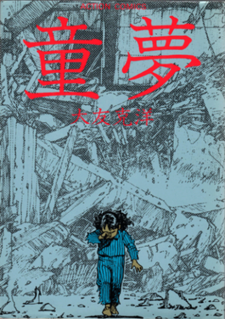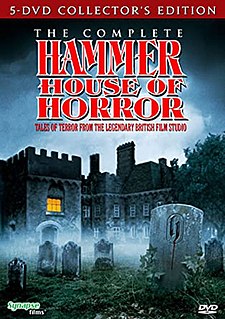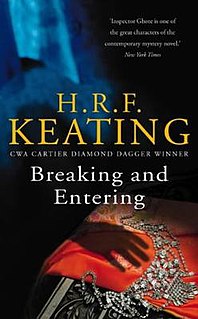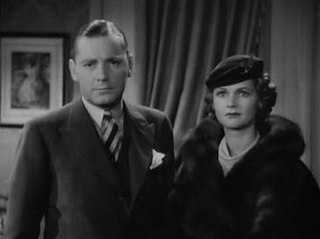Related Research Articles

Jane Eyre is a novel by English writer Charlotte Brontë, published under the pen name "Currer Bell", on 16 October 1847, by Smith, Elder & Co. of London. The first American edition was published the following year by Harper & Brothers of New York. Jane Eyre is a Bildungsroman which follows the experiences of its eponymous heroine, including her growth to adulthood and her love for Mr. Rochester, the brooding master of Thornfield Hall.

Terror Tract is a 2000 American dark comedy/horror anthology film directed by Lance W. Dreesen and Clint Hutchison. It features John Ritter as a real-estate agent trying to sell a variety of houses to a young couple; each with a horror story associated with it. The segment "Make Me an Offer" is the overall plot of the film with Ritter and the three segments dramatized are the different, horrifying stories behind each house. Ritter as the estate agent is desperately trying to close a deal with them to meet a sales target that afternoon, but is confounded each time by his honesty which compels him to tell the grisly stories associated with each house he shows the couple.

The Five Find-Outers and Dog, also known as The Five Find-Outers, is a series of children's mystery books written by Enid Blyton. The first was published in 1943 and the last in 1961. Set in the fictitious village of Peterswood based on Bourne End, close to Marlow, Buckinghamshire, the children Larry, Fatty, Pip, Daisy, Bets and Buster, Fatty's dog, encounter a mystery almost every school holiday, always solving the puzzle before Mr Goon, the unpleasant village policeman, much to his annoyance.

Farewell, My Lovely is a novel by Raymond Chandler, published in 1940, the second novel he wrote featuring the Los Angeles private eye Philip Marlowe. It was adapted for the screen three times and was also adapted for the stage and radio.

Domu is a Japanese manga series written and illustrated by Katsuhiro Otomo. Similar to his work Akira, the story centers on an old man and a child possessing extrasensory powers. It was serialized between 1980 and 1981 in Futabasha's Action Deluxe, with the chapters collected and published as a tankōbon in 1983. The main inspiration for Domu came partly from an apartment complex Otomo lived in when he first moved to Tokyo, and partly from a news report he heard about a rash of suicides that occurred at a separate apartment

The Spiral Staircase is a 1946 American psychological horror film directed by Robert Siodmak and starring Dorothy McGuire, George Brent, and Ethel Barrymore. Adapted from Ethel Lina White's British novel Some Must Watch (1933) by screenwriter Mel Dinelli, the film follows a mute young woman in an early-20th century Vermont town being terrorized by a serial killer who targets disabled women. The novel was adapted for a radio production starring Helen Hayes before reaching the screen.

Hammer House of Horror is a British television series made in 1980. An anthology series created by Hammer Films in association with Cinema Arts International and ITC Entertainment, it consists of thirteen hour-long episodes, originally broadcast on ITV.

The Mysterious Mr Quin is a short story collection by British writer Agatha Christie, first published in the UK by William Collins & Sons on 14 April 1930 and in the US by Dodd, Mead and Company later in the same year. The UK edition retailed at seven shillings and sixpence (7/6) and the US edition at $2.00.

Murder is Easy is a work of detective fiction by Agatha Christie and first published in the UK by the Collins Crime Club on 5 June 1939 and in the US by Dodd, Mead and Company in September of the same year under the title of Easy to Kill. Christie's recurring character, Superintendent Battle, has a cameo appearance at the end, but plays no part in either the solution of the mystery or the apprehension of the criminal. The UK edition retailed at seven shillings and sixpence (7/6) and the US edition at $2.00.
The Further Adventures of Sherlock Holmes is a series of radio dramas based on Arthur Conan Doyle's detective Sherlock Holmes. Written by Bert Coules as a pastiche of Doyle's work, the series was broadcast on BBC Radio 4 in 2002, 2004, 2008–2009 and 2010. There are sixteen episodes, all of them produced and directed by Patrick Rayner of BBC Scotland. Clive Merrison stars as Holmes, having portrayed the detective in a 1989–1998 BBC radio series of dramatisations of every Sherlock Holmes story by Doyle. Andrew Sachs appears as Dr. Watson, replacing Michael Williams after Williams died following the Radio 4 run of Sherlock Holmes adaptations. Each of the stories is based on a throwaway reference from an actual Doyle short story or novel. The first two series are repeated regularly on BBC Radio 4 Extra.

Carmel Jackson is a fictional character from the BBC soap opera EastEnders, played by Judith Jacob from 5 June 1986 to 24 August 1989. Carmel, a health visitor, was initially introduced in a recurring, minor role in 1986, when she is credited as "health visitor". Producers saw potential in the character, and script writers were asked to develop more prominent storylines, and Carmel became a regular character. She is portrayed as a well-meaning, caring individual who is forever getting everyone's problems dumped on her. She is featured in storylines about domestic violence and various family and career upsets. Jacob remained in the role until 1989, when she opted to leave. Off-screen, the character was the subject of criticism regarding the portrayal of her profession from the Health Visitors Association.

Handy Manny is a CGI-animated children's television series that premiered its first two episodes consecutively on Saturday, September 16, 2006, originally as part of Disney Channel's Playhouse Disney daily block intended for preschoolers. On American Valentines Day 2011, it was moved to the Disney Junior block, which lanuched at 6:00 am ET and served as Playhouse Disney's replacement after the Playhouse Disney block ended its almost 14-year run the day before at 1:55 pm ET. Disney Channel's Disney Junior block, on the second anniversary of its launch, was where the Handy Manny Series Finale premiered at 10:30 pm ET, with reruns airing on the Disney Junior channel until April 26, 2018. The titular character are voiced by Wilmer Valderrama.

Kipps is a 1941 British comedy-drama film adaptation of H. G. Wells's 1905 novel of the same name. The film was directed by Carol Reed and stars Michael Redgrave as a draper's assistant who inherits a large fortune. The film's costumes were designed by Cecil Beaton.

Breaking and Entering is a crime novel by H.R.F. Keating. It is the twenty-fourth novel in the Inspector Ghote series.

Young Man with Ideas is a 1952 romantic comedy film directed by Mitchell Leisen and starring Ruth Roman and Glenn Ford. It was released by Metro-Goldwyn-Mayer. The screenplay concern a young small-town lawyer, who moves his family from Montana to Los Angeles in the hope of passing the bar in California to ensure that his family can have a more prosperous lifestyle.

Curtain at Eight is a 1933 American pre-Code mystery film directed by E. Mason Hopper and starring C. Aubrey Smith, Dorothy Mackaill and Paul Cavanagh.

The Solitaire Man is a 1933 American pre-Code drama film directed by Jack Conway and starring Herbert Marshall and Mary Boland.

Kuso is a 2017 American body horror surrealist comedy anthology film directed by Flying Lotus, who co-wrote the screenplay with David Firth and Zack Fox.
References
- ↑ "Michael Friend Productions" . Retrieved 14 March 2007.
- 1 2 "in SE1, March 2000" (PDF). Retrieved 14 March 2007.
- ↑ "Progress Theatre" . Retrieved 14 March 2007.
- ↑ "Reviews: Decadence and People In Cages". BBC Berkshire. 24 April 2007. Retrieved 30 April 2007.